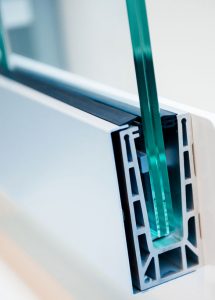
Windows provide our homes with light, thermal comfort and ventilation, but they can also have a negative impact on energy efficiency. The most significant heat loss occurs through the windows, so it is preferable to choose 4 seasons or low-e windows and high-quality frames that will reduce the heat transfer.
You can lower the energy costs by installing energy-efficient windows in your home. If your budget is modest, improving energy efficiency at existing windows is the best solution. However, if your home has very old and inefficient windows, it could be more cost effective to replace them than to attempt to improve their performance.
New energy-efficient windows will pay for themselves; when properly selected and installed, they can help minimize heating, cooling, and lighting costs. Improving your home performance involves designing, selecting, and installing the perfect window. A window is dependent on all its components. Nowadays, the technology behind frames and glass has become very sophisticated and the products are durable and efficient. Designers often specify different types of glass for different windows, depending on orientation, climate or building design.
How to determine the energy efficiency of your windows
On the price quotes that you get for windows, you will always find the U-value, which you have to consider if you want to be sure that the windows you get are energy efficient.
The U-value is the thermal transfer coefficient. It is used to evaluate the thermal insulation of a window and specifies the amount of heat (energy) that is lost through a surface of 1 m² every hour, under certain temperature conditions (interior and exterior) and is measured in W / m²K. The lower this value, the lower the energy loss through the window.
You need to be careful about these details when you study the price offer for windows. Uw refers to the overall heat loss of the window. In calculating this value, you have to include the energy efficiency of the glass (Ug) and the frame (Uf).
Manufacturers typically display the energy efficiency of products using a rating from A to G. The energy-rated windows have the U-value displayed on the energy label. In some cases, high energy performance windows can have a higher value than less energy efficient windows. It may seem wrong, as low values indicate high insulation levels. However, in such cases it is possible because it is another aspect of the window that makes it more efficient, such as the glass insulation, or the air layer separating the two glass panels.
To benefit from a higher Uw-value, consider that thermopane glass has a 75% average prevalence and choose thermopanw or tripane glass with high thermal properties.
You can choose from single-glazed, double-glazed or triple-glazed windows. Compared to conventional single-glass windows with an average Uw of 5.8 W / m²K, modern windows have maximum values of up to 0.85 W / m²K. Opt for triple-glazed windows if you live in an area with low temperatures. However, make sure to take into account the profile you use: not any profile is suitable for this type of replacement window Denver dealers sell.
Besides considering the right type of windows for your home, professional installation is also particularly important to ensure their energy efficiency. Only this way, you can get the most of your windows, in terms of thermal comfort.